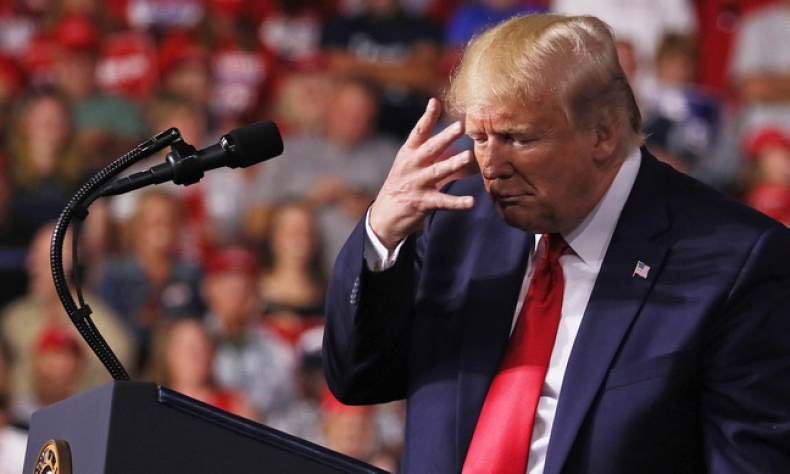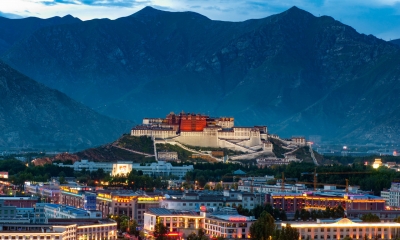Why A Recession Is Now Inevitable

By mid-2019, economic experts no longer pondered if a recession would occur, but instead when it would strike.
On Monday, seven trillion US dollars was wiped from stock markets around the world in the worst day of trading since the financial crash of 2008. With the market crash of ’08 leading to the global financial crisis and the worst recession since the Great Depression, there has been a lot of panic that history could be repeating itself.
Amidst all the panic and confusion, there has been much finger pointing over who or what was to blame. In the US, Democrats blamed Trump, Trump blamed Saudi Arabia, Russia and the media, and the media blamed the coronavirus. Democrats sent the hashtags “TrumpRecession,” “Trumpdemic,” and “Trumpcrash” trending on Twitter, whilst the US president claimed that, “Saudi Arabia and Russia are arguing about the price and flow of oil. That, and the fake news is the reason for the market drop!”
So, who is correct? Who (or what) should bear the responsibility of the stock market crash and the upcoming potential recession? Trump? The media? Oil? Or the Coronavirus?
Who is to blame?
In truth, the situation is a little more complex than attributing blame to a single actor or event. Like Schrodinger’s Cat, who famously existed in two contradictory states of being; Trump, Saudi Arabia, Russia, the media, and the coronavirus are all responsible for the market collapse, and yet not responsible at the same time. Let me explain why.
Since Donald Trump took office, it is undeniable that he has prioritised Wall Street over the real economy. For Trump, as long as the stock market was rising, the American economy was doing great. In an effort to rally Wall Street, the Commander in Chief systematically cut taxes for those in the top income bracket and badgered the Federal Reserve to lower interest rates. With the Fed caving and Wall Street awash with cheap money, stocks became artificially inflated beyond their true market value. A market fall was therefore inevitable.
Moving on to Saudi Arabia and Russia’s very public disagreement over fixing the supply side of the global oil market. As both States found themselves unable to reach a deal at OPEC-plus meeting in Vienna, Saudi Arabia shocked the world by announcing a six-to-eight percent oil price drop. The global financial community viewed the move as the “first shot” in an oil price war and a highly aggressive play designed to capture market share. When markets opened on Monday, oil-prices plummeted and prompted worried investors to pull-out of the usually fruitful oil-stocks. Like a rug being pulled-out from under the feet of the global economy, the drop in oil-demand and subsequent collapse of investor confidence prompted a wider stock market sell-off.
Turning to the media. President Trump has of course made no secret about his virulent disdain for the American media establishment. From the litany of lawsuits against leading news organisations in the courts, to the refusal to answer journalists questions at press conferences; Trump’s attacks on the media have almost become as involuntary as breathing. That said, there is some truth to his claim that the media have indeed played a part in Monday’s crash. The popular press – and the corporate media more broadly – have always leaned towards fear-mongering and sensationalism. Their advertising-based revenue model, has in fact mandated this journalistic environment: more clicks equals more money.
Looking at the media coverage of the unfolding and escalating coronavirus epidemic in China and around the world is a testament to this landscape of hyperbole. For more than one month, the media around the world have speculated endlessly over the coronavirus’ impact on everything from public order, to healthcare and the global economy. The incessant fear-mongering has resulted in a self-fulfilling prophecy, and has led to people panic buying toilet-paper and panic selling Fortune 500 stocks.
The coronavirus itself has undoubtedly played its part in spooking business and investor confidence. The drastic measures taken by China to stem the virus spread came at a notable economic cost. Closing factories and quarantining entire cities, the country ground its wheels of production to a halt. Exports fell by 17 percent for the first quarter year-on-year, and GDP growth estimates were revised down. Now the coronavirus has spread to more than 100 countries, and significant pockets of outbreaks have forced governments such as Italy to follow in China’s footsteps, the world of business is riddled with fear and uncertainty.
Accordingly, the coronavirus, the Trump administration, the Saudi-Russia oil dispute, and the media’s insatiable fear-mongering, has each played a part in Monday’s collapse. However, no actor, individually nor combined, are responsible for seven trillion dollars being wiped from the global markets in a single day.
The bigger picture
Bearing a much greater responsibility than all actors combined is the underlying global economic system itself. This may be an inconvenient fact – even sacrilegious to some market purists in the West – but it is nevertheless a fundamental truth. The system – not its actors – is to blame.
Economists from Karl Marx to Milton Friedman have acknowledged that the foundation of a capitalist economy rests on a cycle of boom and bust. Whilst the overall efficiency of the current system may be in dispute, the nature of the cycle is not. Since the stock market crash of 1929, that went on to cause the Great Depression, the United States has experienced no less than thirteen recessions – on average, one every seven years. As such, stock markets slumps and the subsequent recessions that follow, cannot be blamed on individual actors or events, They are inherent to the economic system itself.
As the current bull-run had tipped over ten years – much longer than average – many economists and market analysts warned that the US was “long overdue a recession.” By 2019, experts no longer pondered if a recession would occur, but instead when it would strike. In August, a survey of 226 leading economists, showed 38 percent believed a recession would occur in 2020 and 34 percent said they believed it would occur during 2021.
With an impending recession overwhelmingly likely, attention has shifted to asking “How severe will it be?” Guggenheim Investments argue that the next recession will not be as bad as the last. “Our work shows that the next recession will not be as severe as the last,” the firms analysts write. Similarly, a report by Standard and Poor concludes that “the next global debt crisis is unlikely to be as severe as the one in 2008-2009.” However, lead researcher Terry Chan, noted that he could not be 100 percent sure. “I’ve been wrong before” he said. “The only prediction I feel comfortable with making is that there will be a next recession, and it won’t be the same as the financial crisis.”
Dr Frank-Jurgen Richter, a former Asia director at the World Economic Forum, is far less optimistic. Richter has warned that the next financial crisis will be “worse the 2008 crash” because a “depleted arsenal of tools at the disposal of central banks” will make it harder to deal with the next crisis. Nouriel Roubini, a professor NYU’s Stern School of Business, and Brunello Rosa, a research associate at the London School of Economics, agree with Richter. Writing in the Guardian in 2018, Roubini and Rosa, make the case that “We are due a recession in 2020, and we lack the tools to fight it.”
At this time, it is not yet clear whether the events of Monday – already labelled “Black Monday” – will bring about the next recession, or whether the next recession is going to be greater or milder than the 2009 global financial crisis. What is certain, however, is that a recession is coming.
When the next recession does strike, no doubt the coronavirus epidemic, oil-price war, or any other future Black Swan event will be labelled as its cause. This of course will be a mistake. The cause of the coming recession will not be the fault of any actors or events, who will merely as the trigger; the cause will be the system itself which by design requires periodic cycles of boom and bust.
 Facebook
Facebook
 Twitter
Twitter
 Linkedin
Linkedin
 Google +
Google +







